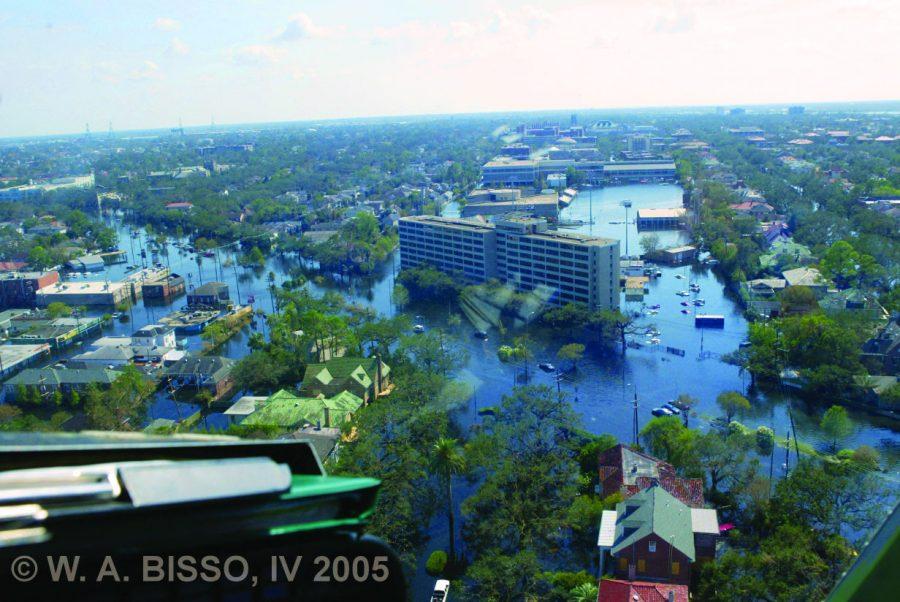Tulane community service 15 years after Katrina
September 9, 2020
This past week, Tulane and the New Orleans community remembered Hurricane Katrina on its 15th anniversary. New Orleanians remembered the devastation the hurricane caused, and the long term impacts that can still be seen today. Due in part to efforts after Katrina, the university now requires all students to complete two service learning courses in addition to offering several courses solely dedicated to Katrina.
Tulane alumna Rebecca Otten, came to campus as a freshman just days before Katrina hit. Due to the impact of the storm, she transferred to another university for the fall and came back to campus in January of 2006. After seeing the impact of the storm, her Tulane experience was shaped by an effort to rebuild New Orleans.
“I did some gutting and rebuilding work, but I mostly was doing things in the education system,” Otten said. “I served as a teaching assistant for a fourth-grade class in the spring of 2006. I worked with a student-run nonprofit where we worked on access to technology and computer training in local high schools, I worked with them for a couple of semesters.”
Even though Otten volunteered in the New Orleans community by her own will, Tulane offered plenty of opportunities to get involved. Beginning with the incoming freshmen class after the storm, Tulane required all students to complete a service learning course where they are required to go out into the city and volunteer their time. While the program started out small, it now offers over 70 classes, with students required to complete two different tiers of service learning.
Otten now works with the Phyllis M. Taylor Center for Social Innovation and Design Thinking, which was founded back in 2014 as another area for service.
In addition, Tulane created a Community Service Fellowship, a four-year scholarship for community outreach leaders. The fellowship is awarded each year to 15 incoming freshmen who excelled in high school, specifically in the areas of community service and leadership. In addition to a scholarship of up to $20,000 annually, fellows are expected to attend monthly meetings with other fellows and complete an average of 100 hours of service and leadership each year. Benjamin Brubaker, who is a program manager in the Center for Public Service, works closely with the fellows as a resource for social justice and student leadership.
“The program strives to create opportunities for Community Service Fellows to engage in responsible community service efforts, learn how to lead with equity and inclusion, understand the context of community engagement in New Orleans and build relationships with the New Orleans community,” the Community Service Fellows website states. “The program also promotes on-campus leadership opportunities and an understanding of the differences between positive examples of community engagement and problematic examples of community engagement.”
The installment of the Taylor Center, the Community Service Fellowship and the service learning requirement are just a few examples of changes that would not have been made if Katrina had not propelled Tulane to focus on service as much as it does today.
“Students were coming to Tulane for different reasons post-Katrina,” Rebecca Otten said. “So I think the student profile of why a student chose to come to campus was different than when I was thinking about which college I wanted to go to.”























Leave a Comment